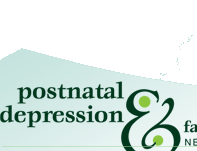 |
 |

|
|
|

MedicationsTo read the Introduction on Treatments Click Here How to decide?Information should not substitute for a consultation with a medical practitioner. General information does not always fit a specific individual. The use of medication needs to be individualised. Respect and concern are the cornerstones of a good therapeutic relationship and it is important that medication is prescribed in this context. It is essential that this is a partnership where the patient or consumer participates in the decision to take medication. It is OK to ask questions and participate in the decision making process. Like most other illnesses medication is often needed as part of effective treatment. Before medications are started a thorough assessment is needed. Starting medication should not be rushed into. Conversely avoiding medication can also be detrimental. Sometimes the first medication used doesnt suit or doesnt work let your doctor know about side effects or lack of effect dont give up. Part of me felt betrayed and defeated going on medication. It went against my values, my ideals, what was important to me. At the same time there was the hope that things would soon improve.
Barriers to Taking MedicationIts usual not to want to take medication, and its healthy not to want to take it unless you need it. Common reasons for not taking medication include:
What can happen?Antidepressant medications are not addictive in the traditional sense. Sometimes it can take a while to find the right dose for you but unlike drugs of addiction you do not need more and more to get the same effect. Some of the medications can lead to withdrawal symptoms if you stop them too suddenly (paroxetine is highly likely to cause this). Some people who have had three or more serious depressive episodes in their life do best if they stay on medication because the risk of getting another episode is high if they are not on medication. Side effects only occur for some people, if they do occur they are usually worst at the beginning of treatment and if you do get some side effects let your doctor know many of these can be managed or improved. The lists of side effects on the medication sheets can be very off putting and most do not occur. Its hard if you have a close relative or partner who is opposed to medication invite them to come with you to support you when you see your doctor. Becoming unwell should never be seen as a failure this is judgemental and harsh be easier on yourself would you judge someone else as a failure if they needed medication for some illness? I never liked taking medication, even paracetamol for a headache. I didnt really think I was depressed. I thought it was just me that I needed to try harder. However no matter how hard I tried, I got worse. I didn't want to take medication at all and was really anxious when I started. Luckily I started to feel better." Erin
|
||||||||||||||
Home | About us | Baby | Books & Links | Contact Us | Culture | Fact Sheets | Family/Whanau | Fathers | Glossary | Medical Info | Medications | Post Natal Depression | Pregnancy | Q&A | Related Conditions | Stories | Support | Treatments |

